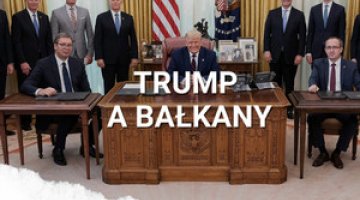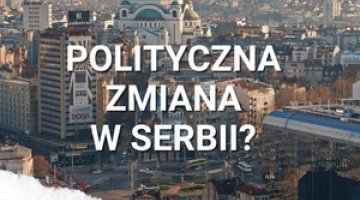Snap election in Serbia: the dominance of the ruling right continues
A snap parliamentary election was held in Serbia on 24th April. It was won by the right-wing Serbian Progressive Party (SNS) led by Prime Minister Aleksandar Vucic. According to initial results, the party repeated its result from 2012 and garnered 48% of the vote. The co-ruling Socialist Party of Serbia (SPS) of the deputy prime minister Ivica Dacic saw a slight drop in support, with nearly 11% of the vote. The election strengthened the nationalist pro-Russian right: the Serbian Radical Party (SRS) returned to parliament, obtaining 8% of the vote, as did the DSS-Dveri, a party with a similar manifesto, securing 5% of support. Three left-wing liberal parties, with 5-6% of support each, also obtained seats in parliament: the Democratic Party (DS), Dosta je bilo (Enough), and the social democrats (SDS) of the former president Boris Tadic. The SNS also enjoyed a great victory in the parallel local elections, defeating the liberal opposition in its traditional stronghold – Vojvodina.
Commentary
- The election was intended to take advantage of record levels of support for the SNS, which has been in power since 2012, as well as for the prime minister Aleksandar Vucic, and to consolidate power. It also meant a further postponement of socially painful economic reforms. The high level of support for the SNS, despite the lack of improvement in the country’s economic situation, stems above all from the subordination of the media to the ruling party and the weakness of the divided opposition which compromised itself while ruling in the previous decade. The slogans of radical fight against corruption and its promises of new investments are still credible for voters, despite the fact that the government has not had any spectacular success in these two areas.
- Prime Minister Vucic secured only a partial success. Although the SNS garnered a record number of votes, which makes it possible for the party to rule alone, a lot more parties seem to have crossed the electoral threshold, which will lead to a weaker position for the SNS in parliament (131 of the 250 seats in parliament). Vucic, as in his previous terms in office, will seek to form a coalition. This will prolong the process of forming the government but it will allow the party (as was the case in previous terms) to shift the blame for failures onto smaller coalition parties. The presence of nationalists in parliament rules out the possibility of taking radically pro-Western measures (strengthening co-operation with NATO, settling the issue of Kosovo) and will consolidate the position of Vucic in his relations with the EU since he will present them as a bogeyman.
- No changes in foreign policy or internal policy should be expected. The government will continue to develop European integration and co-operation with the West, while maintaining close ties with Russia, which Vucic approaches pragmatically. Vucic uses collaboration with Russia as an instrument of exercising pressure on the EU when demanding concessions. Nor should tensions in Serbia’s relations with its neighbours be ruled out since they will divert society’s attention away from the country’s current situation. As for Serbia’s internal situation, economic reforms and the adjustment of Serbian regulations to EU requirements will remain the main challenges. Meeting EU requirements will be limited to strictly technical issues since it should be expected that the ruling party will seek to further subordinate the state institutions (for example the judiciary) to serve its interests.




